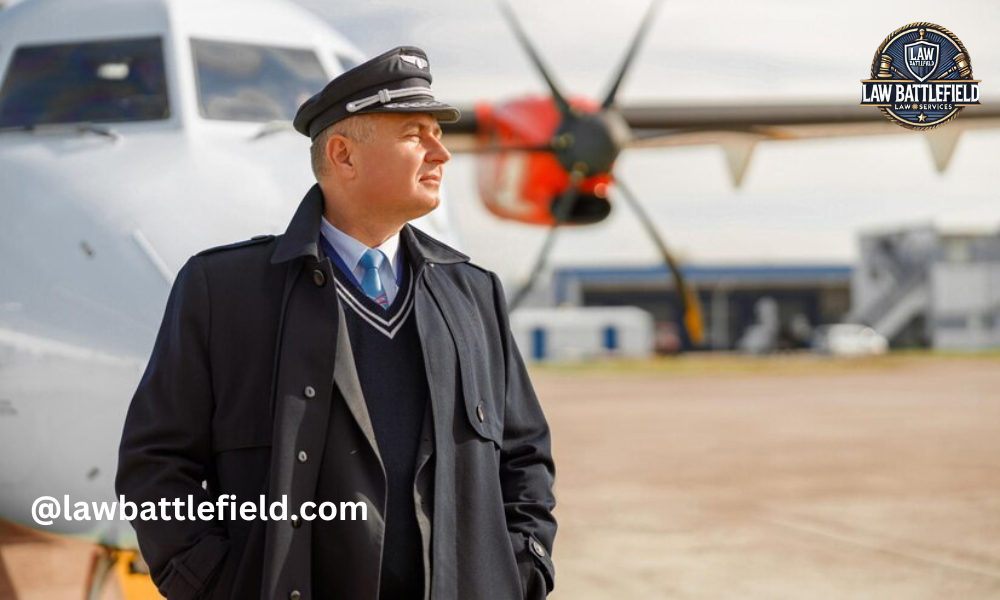Aviation law is a specialized field that deals with the legal aspects of air travel, aircraft operation, and regulations governing the aviation industry. When aviation accidents occur, the consequences can be devastating, leading to complex legal disputes involving passengers, crew members, airlines, manufacturers, and even government agencies. Aviation attorneys are uniquely qualified to handle these cases, providing expertise in both aviation regulations and legal frameworks.
This article explores the critical role aviation attorneys play in accident cases, from investigating the causes to representing victims and their families. It highlights the complexities of this legal field and the essential skills these professionals bring to their work.
What Is Aviation Law?
Aviation law governs all aspects of air travel and aircraft operations. It involves a broad spectrum of legal matters, including:
- Regulation of airlines and aircraft operations
- Licensing and certification of pilots
- Air traffic control protocols
- Liability for accidents and incidents
Both domestic and international laws influence this field. For example, in the United States, the Federal Aviation Administration (FAA) establishes strict regulations, while international agreements like the Montreal Convention govern liability for international flights. Aviation attorneys must be well-versed in these intricate legal frameworks to effectively manage accident cases.
What Do Aviation Attorneys Do?
Aviation attorneys are legal professionals who specialize in aviation-related issues. Their work includes representing individuals, companies, or organizations in disputes related to air travel, aircraft accidents, or regulatory compliance. These attorneys often handle cases involving:
- Aircraft accidents
- Pilot negligence
- Defective aircraft design
- Regulatory violations
Their expertise is especially critical in accident cases, where legal, technical, and regulatory elements intersect.
Responsibilities Of Aviation Attorneys In Accident Cases
1. Investigating The Cause Of The Accident
Determining what caused an aviation accident is one of the most important roles of an aviation attorney. This process often involves working closely with experts such as:
- Accident Investigators: These professionals analyze evidence such as black box data, cockpit voice recordings, and crash site details.
- Aviation Engineers: Attorneys rely on engineers to review potential mechanical issues, such as faulty components or design flaws.
- Air Traffic Control Experts: Insights into communication logs and procedures during the flight can reveal key information about what went wrong.
Attorneys use this data to build a comprehensive picture of the incident, which is critical for identifying liable parties.
2. Establishing Liability
Aviation accidents often involve multiple parties, including airlines, aircraft manufacturers, maintenance companies, and even government entities. Aviation attorneys assess the roles and responsibilities of these stakeholders to determine who is at fault. Common factors that may contribute to liability include:
- Pilot Error: Mistakes made during flight operations
- Mechanical Failures: Defective equipment or improper maintenance
- Operational Negligence: Inadequate crew training or failure to follow safety protocols
- Weather Conditions: Insufficient preparation for adverse weather scenarios
- Air Traffic Control Errors: Communication or procedural failures
Thoroughly analyzing evidence and connecting it to specific legal responsibilities is a vital part of an aviation attorney’s role.
3. Representing Victims And Families
Aviation attorneys often represent passengers, crew members, or their families in seeking compensation for injuries or wrongful death caused by accidents. This can include:
- Medical expenses and ongoing care
- Loss of income and future earning capacity
- Pain and suffering
- Emotional distress
- Loss of companionship for surviving family members
Attorneys must navigate a complex web of legal claims, insurance policies, and regulations to ensure their clients are adequately compensated.
Legal Challenges In Aviation Accident Cases
1. Jurisdictional Complexities
Aviation accidents frequently involve multiple jurisdictions. For example, an international flight crash may involve:
- The country where the airline is based
- The location of the crash
- The passengers’ home countries
Attorneys must determine which jurisdiction’s laws apply and file claims in the appropriate venues.
2. Compliance With Statutes Of Limitation
Time limits for filing aviation accident claims vary depending on the jurisdiction and type of case. Aviation attorneys must ensure their clients’ claims are submitted within these timeframes to avoid forfeiting their rights to compensation.
3. Technical Evidence And Expertise
Aviation cases often hinge on technical evidence, such as black box data, maintenance records, and manufacturing specifications. Attorneys must:
- Work with aviation experts to interpret this data
- Present technical findings in a clear, understandable way during negotiations or in court
- Challenge opposing experts’ testimonies when necessary
4. Dealing With Powerful Defendants
Airlines, manufacturers, and insurance companies often have significant legal resources at their disposal. Aviation attorneys must leverage their expertise and negotiation skills to counter these well-funded defenses and achieve favorable outcomes for their clients.
Skills Of Effective Aviation Attorneys
Aviation attorneys require a unique blend of skills to succeed in this highly specialized field:
- Technical Knowledge: Familiarity with aircraft operations, engineering principles, and air traffic systems is crucial.
- Legal Expertise: A deep understanding of aviation laws, both domestic and international, is essential.
- Investigative Skills: The ability to analyze crash reports, witness statements, and expert findings is key to building a strong case.
- Negotiation and Advocacy: Whether resolving claims through settlement or litigation, attorneys must be persuasive advocates for their clients.
- Empathy and Communication: Clients often face significant emotional trauma, and attorneys must provide compassionate support while explaining complex legal processes.
Aviation attorneys, such as those at Katzman Lampert & Stoll aviation attorneys, play a vital role in navigating these challenges. Their combination of legal expertise and technical insight allows them to effectively represent victims of aviation accidents and secure justice on their behalf.
Aviation accident cases are among the most complex in the legal world, requiring specialized knowledge of both the aviation industry and legal systems. Aviation attorneys serve as indispensable allies for victims and their families, ensuring accountability and proper compensation in the aftermath of tragic events. Through meticulous investigation, strategic advocacy, and compassionate representation, they help their clients navigate the intricacies of aviation law and rebuild their lives.
Was this article helpful? Check out more on Lawbattlefield.com
Finding Expert Criminal Attorneys In Thailand With Offices In California For Cross-Border Legal Help





